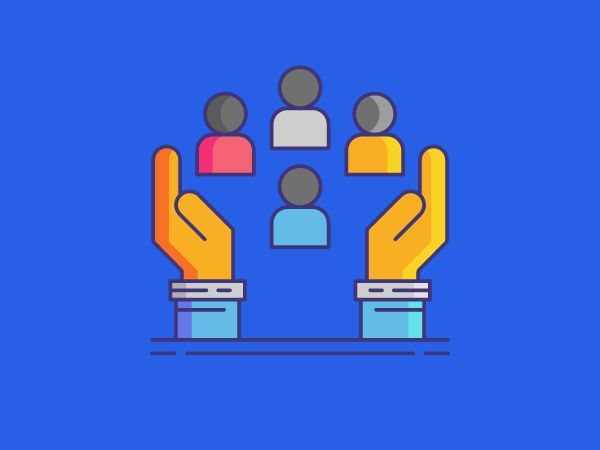
Why does personalization in promotions matter today more than ever? (with examples)
To succeed in today's competitive landscape, businesses must embrace personalization as a core strategy for engaging customers and driving growth.
The world of marketing has changed drastically in recent years. Businesses are constantly looking for new ways to engage their customers and drive sales, and personalization in promotions brings a significant opportunity to differentiate your brand and boost customer engagement.
Promotions, in this context, refer to any marketing tactic that incentivizes customers to make a purchase or take some other desired action. This can include referral programs, loyalty programs, coupons, discounts, leaderboards, and streaks, among others.
Personalization, on the other hand, is the practice of tailoring marketing messages and promotions, offers to individual customers based on their preferences, behaviors, and other data points. The goal is to create a more relevant and engaging experience that drives better results for both the business and the customer.
In today's competitive business landscape, it's more important than ever for companies to stand out from the crowd and deliver a personalized experience to their customers. This is especially true when it comes to promotions, which can be a powerful tool for driving customer engagement, loyalty, and sales.
Promotions are a key part of any marketing strategy and can take many forms, such as referral programs, loyalty programs, coupons, discounts, leaderboards, streaks etc. However, in today's digital age, generic promotions are no longer enough to capture the attention of customers. Instead, businesses need to deliver personalized promotions that are tailored to the individual needs and preferences of their customers.
Why Personalization matters in promotions?
Personalization in promotions matters for a variety of reasons. First and foremost, it helps to create a better customer experience. By tailoring promotions to individual customers, businesses can show that they understand their needs and preferences, making them feel more valued and appreciated.
This, in turn, leads to increased customer loyalty. Customers are more likely to stick with a business that makes an effort to personalize their experience and rewards them for their loyalty. This can also lead to greater customer retention, as customers are less likely to switch to a competitor if they feel a strong connection to a particular brand.
In addition to these benefits, personalization can also have a significant impact on a business's bottom line. By delivering targeted promotions and offers, businesses can increase revenue and sales. Customers are more likely to make a purchase if they feel that the offer is specifically tailored to their needs and interests.
Furthermore, personalization can also lead to higher conversion rates. By delivering the right message to the right person at the right time, businesses can increase the likelihood that a customer will take the desired action, whether that's making a purchase, signing up for a newsletter, or referring a friend.
All of these benefits make personalization in promotions a valuable investment for businesses of all sizes and industries. By delivering personalized experiences to their customers, businesses can create a competitive advantage and drive long-term success.
Growing Importance of Personalization in Promotions
The importance of personalization in promotions is only growing with time. As customers become more accustomed to personalized experiences in all aspects of their lives, they increasingly expect the same from businesses.
A study by Segment found that 71% of consumers feel frustrated when their shopping experience is impersonal.
To meet these expectations, businesses must embrace personalization as a core strategy for engaging customers and driving loyalty. This includes leveraging new technologies and data sources to deliver increasingly sophisticated and targeted promotions.
One area of growth for personalization in promotions is the use of AI and machine learning. These technologies allow businesses to analyze vast amounts of customer data in real-time, identifying patterns and insights that can be used to deliver personalized promotions at scale.
Another emerging trend is the use of gamification techniques, such as leaderboards and streaks, to create a more engaging and personalized experience for customers. These techniques can be used to encourage specific behaviors, such as referrals or repeat purchases, while rewarding customers for their loyalty.
Overall, the growing importance of personalization in promotions is driven by the need for businesses to create meaningful and engaging experiences for customers. By leveraging new technologies and strategies, businesses can deliver personalized promotions that drive customer loyalty, retention, and revenue.
Examples of Successful Personalized Promotions
Personalized promotions have proven to be successful in driving customer engagement and increasing revenue for businesses. Here are some examples of successful personalized promotions:
Sephora Beauty Insider
Sephora's loyalty program, Beauty Insider, offers personalized promotions and rewards to its members. The program uses customer data to tailor promotions and experiences to each member's interests and preferences. For example, if a member frequently purchases skincare products, they may receive a promotion for a free sample of a new moisturizer.

The personalized approach worked, with Sephora reporting that Beauty Insider members spend more than non-members. Furthermore, the program has led to increased customer loyalty, with members being more likely to return to Sephora for future purchases.
Adidas Runtastic
Adidas Runtastic, a running app, offers personalized promotions to its users. The app uses customer data, such as running distance and speed, to offer personalized challenges and promotions. For example, if a user runs a certain distance within a certain time frame, they may receive a promotion for discounted running gear.

The personalized approach has been highly successful, with Adidas reporting that Runtastic users who participate in personalized challenges and promotions are more likely to continue using the app and purchasing Adidas products.
NikePlus
NikePlus is a loyalty program that offers personalized promotions and rewards to its members. The program uses customer data to tailor promotions and experiences to each member's preferences and interests. For example, if a member frequently purchases running shoes, they may receive a promotion for a discount on their next pair of shoes.

The personalized approach has been a big success, with Nike reporting that NikePlus members are more likely to purchase Nike products and return to the brand for future purchases.
Starbucks Rewards
Starbucks Rewards offers personalized promotions and rewards to its members. The program uses customer data to tailor promotions and experiences to each member's preferences and interests. For example, if a member frequently orders a specific drink, they may receive a promotion for a discounted or free drink.
The personalization of promotions really did well, with Starbucks reporting that Rewards members spend more and visit more frequently than non-members. Furthermore, the program has led to increased customer loyalty, with members being more likely to recommend Starbucks to friends and family.
These examples demonstrate the effectiveness of personalized promotions in driving customer engagement, loyalty, and sales. By leveraging customer data, businesses can offer personalized promotions and experiences that cater to each customer's preferences and interests, leading to increased customer satisfaction and revenue growth.
Future of Personalized Promotions
As technology continues to advance and customer expectations evolve, the future of personalization in promotions is likely to see continued innovation and growth. Here are some potential trends to watch for:
- Personalization beyond customer data- While customer data has traditionally been the foundation of personalized promotions, businesses are increasingly exploring new sources of data and insights to inform their strategies. This includes social media data, browsing behavior, and even biometric data such as heart rate and facial expressions.
- The rise of hyper-personalization- Hyper-personalization takes personalization to the next level by creating unique experiences that are tailored to the individual at a granular level. This might include personalized product recommendations based on specific preferences, or promotions that are timed and targeted to align with the customer's daily routine.
- Personalization as a service- As more businesses recognize the importance of personalization in driving customer engagement, we may see the emergence of "personalization as a service" providers. These companies would offer personalized promotion solutions that businesses can plug into their existing systems, without needing to invest in their own personalization infrastructure.
- Increased focus on data privacy- As personalization strategies become increasingly sophisticated, there will be a growing need for businesses to prioritize data privacy and security. Customers are becoming more aware of the risks associated with sharing their personal information, and businesses that fail to protect their data may face reputational damage and legal consequences.
Overall, the future of personalization in promotions is likely to be shaped by advances in technology, evolving customer expectations, and changing regulatory landscapes. Businesses that are able to stay ahead of these trends and deliver meaningful, personalized experiences to their customers will be well positioned for long-term success.
Conclusion
Personalization in promotions is more important than ever before. By tailoring promotions to the individual preferences and behaviors of customers, businesses can improve customer experience, increase loyalty and retention, and drive revenue and sales. Furthermore, as technology continues to evolve and customer expectations grow, personalization in promotions is likely to become even more essential for businesses seeking to remain competitive. This means investing in the right technologies and data sources, creating engaging and personalized experiences, and prioritizing data privacy and security.
By leveraging the power of personalization, businesses can create meaningful experiences that resonate with customers and drive long-term loyalty and growth.
